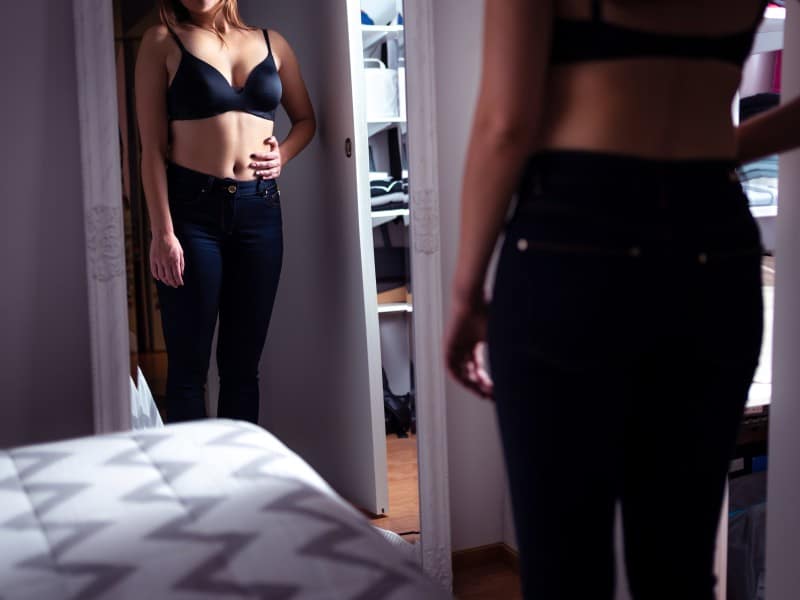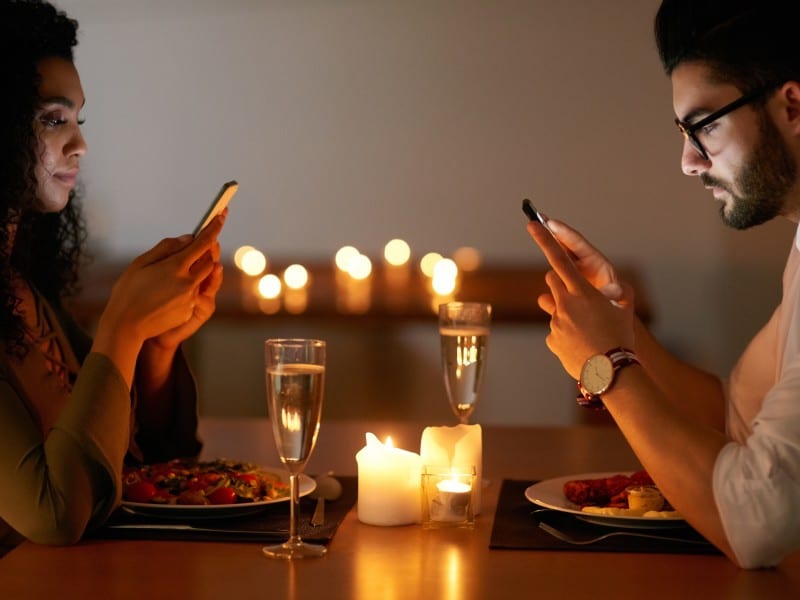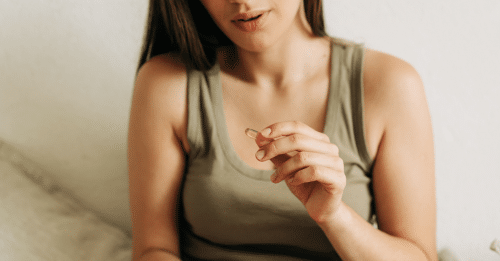Navigating the Impact of Social Media on Latina Body Image
The chase for ‘perfection’ is messing with Latina self-love. Caught between the skinny hype of Western beauty standards and our own curve-loving culture, it’s a twisted battle of ideals.

Social media. Love or hate it, it has become an integral part of our lives. With 62.3% of the world’s population using social media daily, platforms like YouTube, Facebook, Instagram, and TikTok aren’t going anywhere. While people of all ages use social media, it’s most popular among Millennials and Gen Zers, including Latinas.
While social media has many positive aspects, such as fostering connections, allowing us to share thoughts and ideas, engaging with communities, and more, it’s also undeniable that it’s hurting many people’s mental health.
For women, in particular, social media has been shown to increase comparison and competition among females, contributing to issues like low self-esteem, body dysmorphia, and negative body image. The more time you spend on social media, the more you’re exposed to the illusion of the perfect body and the more you feel like the odd one out. Is there a way to break away from that?
How Social Media Affects Latinas’ Body Image
Body image refers to how you perceive your body, how you feel about it, and how you experience it. This can be negative, where you feel like your body is wrong and you want it to be different, leading to a sense of shame and embarrassment. Or it can be positive, where you feel satisfied, accepting, and grateful for your body, independent of external influences.
This perception of our bodies can be influenced by many factors, including lived experiences, societal messages, and beliefs. It’s also highly influenced by social media because it’s where we’re exposed to whatever beauty standard is trending at any given time. Moreover, social media exposes us to unrealistic depictions of beauty because most of the images we see are filtered or edited and posed.
Social media also creates an unhealthy culture of comparison and competition. Women are particularly susceptible to it, especially teenagers, and tend to compare themselves to what they see online. That’s because we have learned to see ourselves based on what we see in the media. What we see in the media are tons of pictures of good-looking, seemingly flawless people, and it can make us feel deeply insecure.
Many studies have looked into this cultural phenomenon, and the overall conclusion is the same: spending too much time on social media is a surefire way to feel bad about yourself and your body. Latinas are highly affected by this because beauty standards often prioritize thin white women. Meanwhile, the Latino culture idealizes curvy, hourglass body types. So, the pressure is coming from all sides for Latinas.
Considering that social media is so essential to our daily lives, this leads us to the question: is there a way for Latinas to use social media healthily? Can we take back control of the effect it can have on our body image?
How to Turn Social Media into a Source of Latina Empowerment
It’s important to remember that social media isn’t inherently all good or all bad, it’s the way we use it that defines the effect it has on us. We can’t change the way society as a whole employs social media, but we can decide how to use it ourselves and the kind of power we allow it to have in our lives.
When it comes to Latinas and the effect social media can have on our body image, many Latina influencers are helping break the cycle by promoting body positivity and sharing themselves as they are. Switching to more body-positive and honest content is an effective way to expose yourself to real bodies of all shapes and sizes, as well as find inspiration. This, in turn, can have a positive impact on the way you see yourself and your level of body satisfaction.
It’s also important to make a conscious effort to avoid comparison. Social media can be a source of inspiration and motivation, but if your mindset frames everything you see in terms of what you think you lack, it will continue to be a source of discomfort. Not just about your body, but also about your accomplishments, your career, your love life, and more.
One way to help yourself is to curate your feed and make following people a more conscious practice. When you spend time on social media, are there people who instantly trigger comparisons or make you feel bad about yourself? If so, it’s time to unfollow them and fill your feed with content that makes you feel good. Whether that’s empowering Latina influencers, cat meme accounts, nature photos, affirmations, motivational messages, etc., find content that provides positive feelings.
If you need some help, here are a few Latina influencers who champion body positivity and encourage realistic body perception:
Jessica Torres (@thisisjessicatorres)
Born in Ecuador, Jessica Torres is known for her style and joy. Not only can she serve as fashion inspiration, but her bold outlook on life and approach to body positivity will also help you embrace your feminine energy and confidence.
Massy Arias (@massy.arias)
If you need some fitness inspiration, Dominican Republican Massy Arias provides helpful tips on how to take care of your body. She’s a health coach known for her workouts, tips, and empowering takes.
Gloria Lucas (@nalgonapride)
Mexican-American Gloria Lucas is an activist who’s particularly passionate about raising awareness of eating disorders within the Latino community. Her body-positive messaging is inspiring and she will also expose you to social issues worth everyone’s attention.
Nancy Gonzalez (@nancys_journey)
Last but not least, Nancy Gonzalez is another fitness influencer and she was initially focused on sharing her weight loss journey. She’s known for her sense of humor and her tips on workout techniques and healthy meals, encouraging others by sharing her progress.
Conclusion
At the end of the day, it’s important to remember it’s in your power to take the reins and decide what kind of effect social media can have on you. You can either use it and allow yourself to be sucked into the comparison culture or you can use it for your own empowerment by being a lot more mindful of the people you follow and the content you interact with.




